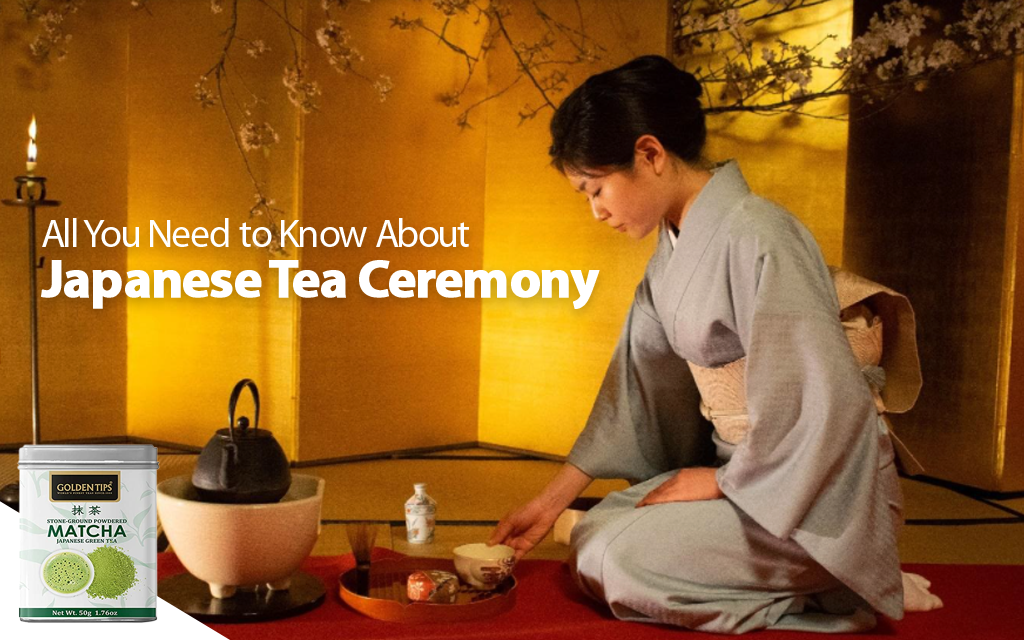
All You Need to Know about Japanese Tea Ceremony
Japanese tea culture is unique and famous around the world for its simplicity, serenity, and spirituality. It is a formal and peaceful affair that requires both hosts and guests to follow the etiquettes to preserve the energy it aims to create.
The Japanese tea ceremony or Chanoyu considers harmony, respect, purity, and tranquility to be essential components of the affair. It is a beautiful setting and deeply impactful. However, how did it come to be, and how is the Japanese tea ceremony performed?
The History of Japanese Tea Culture
Bodhidharma started the tea-drinking culture started among Chinese Buddhist monks to aid their meditations. This culture made it to Japan in the 8th century and attained part of its current form in the 15th century. Sen Rikyu, a Japanese tea master, influenced the tea culture and made it a simple and sober affair to preserve spirituality.
What You’ll Need for Japanese Tea Ceremony
Now that you are aware of the history, let’s look at the objects you will need to perform this ceremony. You will need:
- Matcha powder
- Matcha whisk
- Portable brazier – used for heating small kettles
- Japanese teapot and bowl
- Silk Cloth
- Freshwater container
- Ladle
- Tea Cady
Steps of Japanese Tea Ceremony
Japanese tea ceremonies are a serene and spiritual affair that can last for up to 3 hours at a time. Following are the steps involved in conducting a traditional tea.
1. Purification
Using a silk cloth, the host purifies or cleanses the utensils and items that will be a part of the ceremony. Purification does not indicate that the utensils are unclean. It aims to purify the souls attending the ceremony.
2. General Etiquette
It is customary for guests to sit with their knees folded and maintain straight postures. They are expected to wear socks, but no one should have shoes on. It is common in most East Asian cultures for residents and guests to remove their shoes before entering the house.
3. Preparing Thick Matcha Tea
To start, the host adds matcha powder to the bowl and mixes it with water to make the sample bowl. There is a 3:1 blending ratio of matcha to water at this step, meaning the host adds three teaspoons of matcha for each cup of water.
4. Serving Thin Matcha Tea
Once this formality is over, the host prepares a bowl for each guest, whisking the matcha to get the customary froth. The tea is less concentrated this time and has a ratio of 1:1 (1 teaspoon matcha for each cup of water).
5. Cleaning of Tools
When everyone is done drinking their tea, the host uses the silk cloth and water to cleanse the utensils and passes the clean utensils to guests to admire or comment on.
6. End of Ceremony
With every aspect covered, the guests soon depart, and the ceremony comes to an end.
Wrap Up
We are sourcing the best matcha teas directly from Japan and introducing them in various blends which are quite famous around the world.
We hope you enjoyed our small guide about the Japanese tea ceremony and culture. If you want to learn more interesting facts, check out more of our blogs to get all the information you will need about tea.
You can also check out our store and take a look at our extensive tea collection and varieties.

Mint Matcha Japanese Green Tea
Matcha is a fine stone-ground green tea powder from Japan....
View Price
Lemon Matcha Japanese Green Tea
Matcha is a fine stone-ground green tea powder from Japan....
View Price
Japanese Matcha Green Tea Powder - Tin Box
This truly detoxifying drink is the secret to mental & physical....
View Price























